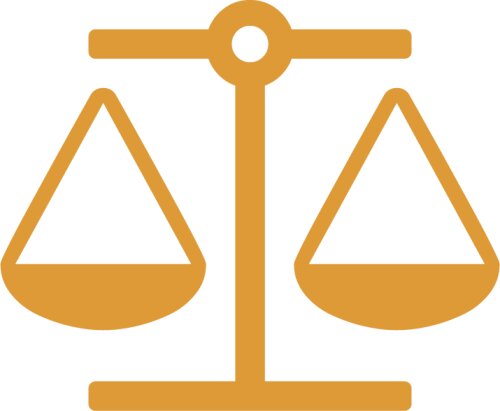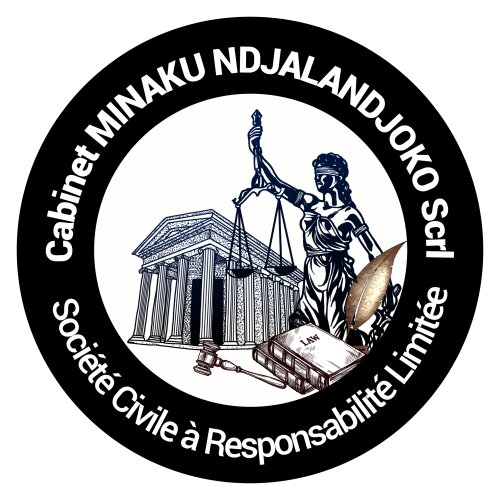Best Nonprofit & Charitable Organizations Lawyers in Kinshasa
Share your needs with us, get contacted by law firms.
Free. Takes 2 min.
List of the best lawyers in Kinshasa, DR Congo
About Nonprofit & Charitable Organizations Law in Kinshasa, DR Congo
Nonprofit and charitable organizations play a vital role in addressing social, cultural, and economic issues in Kinshasa, Democratic Republic of the Congo (DRC). These organizations can take various forms, including non-governmental organizations (NGOs), associations, and foundations. The legal framework governing these entities seeks to ensure transparency, accountability, and ethical operation while fostering an environment conducive to civil society development. Local laws mandate organizations to operate non-commercially, with any surplus generated being reinvested into the organization's objectives rather than being distributed as profit.
Why You May Need a Lawyer
Navigating the legal landscape of nonprofit and charitable organizations in Kinshasa can be complex. Here are common situations where legal advice may be necessary:
- Forming a new nonprofit organization or association, which involves registering with appropriate governmental bodies.
- Ensuring compliance with local laws and regulations relating to taxation, labor laws, and reporting requirements.
- Handling complex contractual agreements with partners, donors, or service providers.
- Dealing with governance issues, such as board disputes or changes in leadership.
- Pursuing or defending legal actions related to the nonprofit’s activities.
Local Laws Overview
The legal framework for nonprofit and charitable organizations in Kinshasa is largely governed by the Ministry of Justice and other relevant government departments. A few key aspects include:
- Organizations must register with the Ministry of Justice and often require additional approval from relevant local government authorities.
- Nonprofits must adhere to governance standards, which include having a clear organizational structure and written statutes or bylaws.
- There are specific requirements for financial accountability, including maintaining accurate financial records and submitting annual reports.
- Strict regulations exist regarding transparency, particularly in fundraising activities and utilization of funds.
- Labor laws apply to nonprofit organizations, requiring compliance with employment contracts and worker's rights.
Frequently Asked Questions
What is the process to register a nonprofit in Kinshasa?
Registration involves submitting an application to the Ministry of Justice, including the organization's statutes, a list of founding members, and an operational plan. Additional approvals may be necessary from local authorities.
Are nonprofits tax-exempt in Kinshasa?
Typically, nonprofits are eligible for certain tax exemptions, but they must apply to the tax authority for such status and comply with ongoing reporting requirements to maintain it.
What are the requirements for funding transparency?
Nonprofits must keep detailed records of all donations and expenses, often required to submit these annually to governmental oversight bodies to ensure transparency and accountability.
Can foreign nationals start a nonprofit in Kinshasa?
Yes, foreign nationals can start nonprofit organizations, but they must comply with local laws and often need to partner with local citizens or entities to facilitate the process.
What governance standards are required for nonprofits?
Organizations must define their structure, draft bylaws, and establish a governing body such as a board of directors to oversee operations and compliance.
Are there special considerations for international NGOs operating in Kinshasa?
International NGOs must comply not only with local laws but often need clearance from the Ministry of Foreign Affairs, which may involve additional reporting and compliance requirements.
Can a nonprofit distribute profits to its members or founders?
No, nonprofits are required to reinvest any surplus back into their operational activities and towards fulfilling their mission and objectives.
What should I do if my nonprofit faces legal disputes?
It is advisable to seek legal counsel experienced in nonprofit law to navigate any disputes; mediation or arbitration can also be considered as alternatives to court proceedings.
How often do nonprofits need to renew their registration or licenses?
This depends on the nature of the organization and local laws, but annual or biennial renewals are common practices that involve confirming compliance with existing regulations.
Do nonprofits need to comply with labor laws?
Yes, nonprofits must comply with local labor laws, which include stipulations on employee rights, working conditions, and contract regulations.
Additional Resources
Below are some resources that can provide assistance to those involved in nonprofit and charitable organizations in Kinshasa:
- The Ministry of Justice - Oversees the registration and regulation of nonprofit organizations.
- Local Chambers of Commerce - Can provide guidance and resources for nonprofit entities.
- The National Independent Electoral Commission (CENI) - Offers additional context for politically active nonprofits.
- NGO networks and associations - Provide peer support and advocacy for nonprofit organizations.
Next Steps
If you need legal assistance in navigating nonprofit and charitable organization law in Kinshasa, consider taking these steps:
- Research and reach out to lawyers or legal firms specialized in nonprofit law within DRC, Kinshasa.
- Prepare all necessary documentation related to your organization before consultations to facilitate legal assessments.
- Engage with local and international networks for nonprofits to gain insights and recommendations on reliable legal experts.
- Regularly review your legal compliance status to address any issues proactively.
Lawzana helps you find the best lawyers and law firms in Kinshasa through a curated and pre-screened list of qualified legal professionals. Our platform offers rankings and detailed profiles of attorneys and law firms, allowing you to compare based on practice areas, including Nonprofit & Charitable Organizations, experience, and client feedback.
Each profile includes a description of the firm's areas of practice, client reviews, team members and partners, year of establishment, spoken languages, office locations, contact information, social media presence, and any published articles or resources. Most firms on our platform speak English and are experienced in both local and international legal matters.
Get a quote from top-rated law firms in Kinshasa, DR Congo — quickly, securely, and without unnecessary hassle.
Disclaimer:
The information provided on this page is for general informational purposes only and does not constitute legal advice. While we strive to ensure the accuracy and relevance of the content, legal information may change over time, and interpretations of the law can vary. You should always consult with a qualified legal professional for advice specific to your situation.
We disclaim all liability for actions taken or not taken based on the content of this page. If you believe any information is incorrect or outdated, please contact us, and we will review and update it where appropriate.















